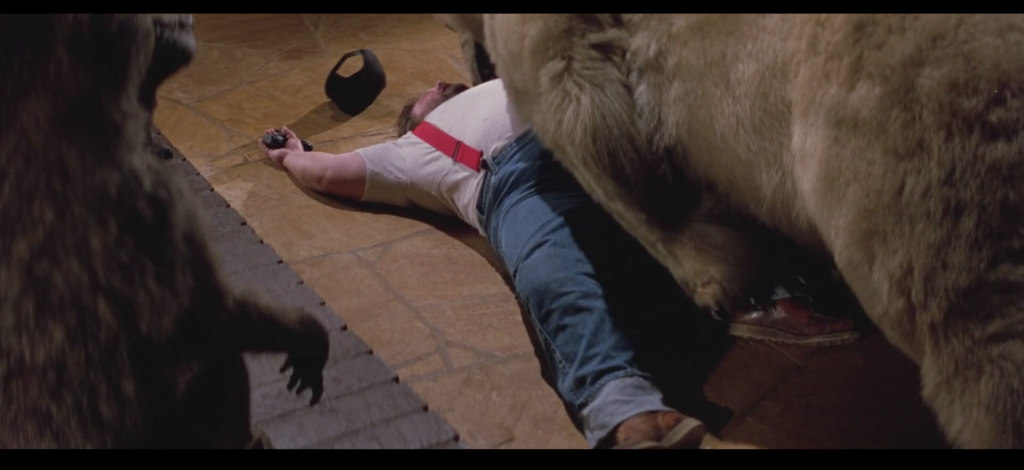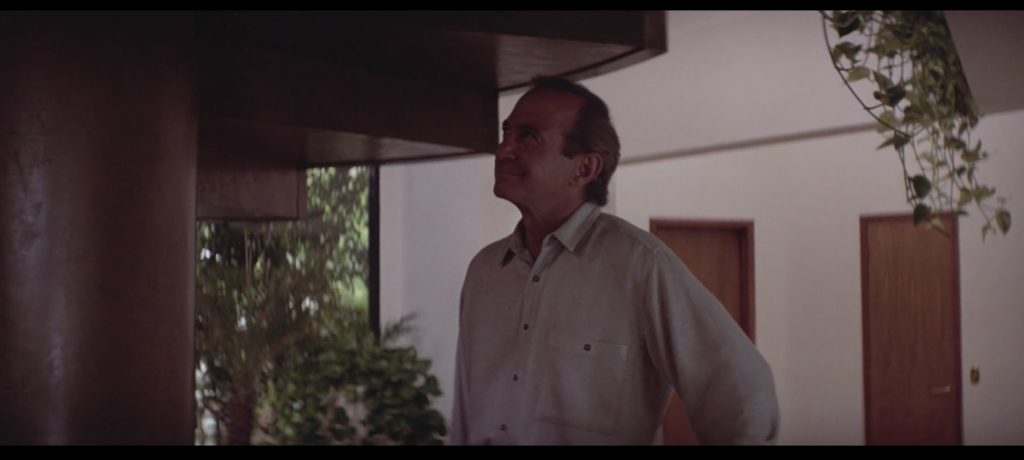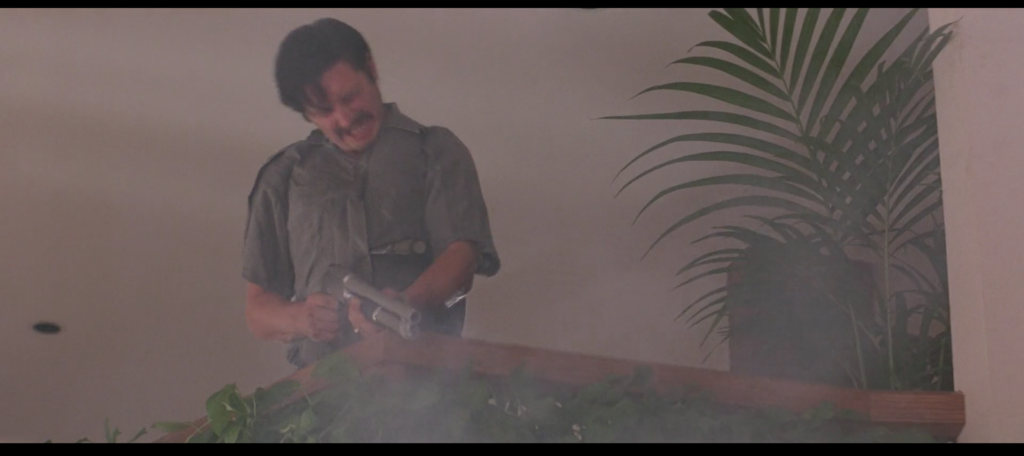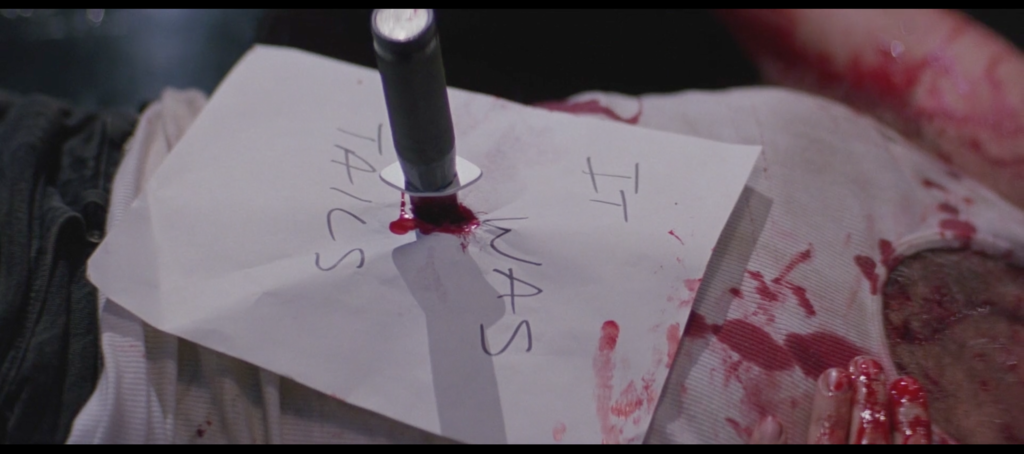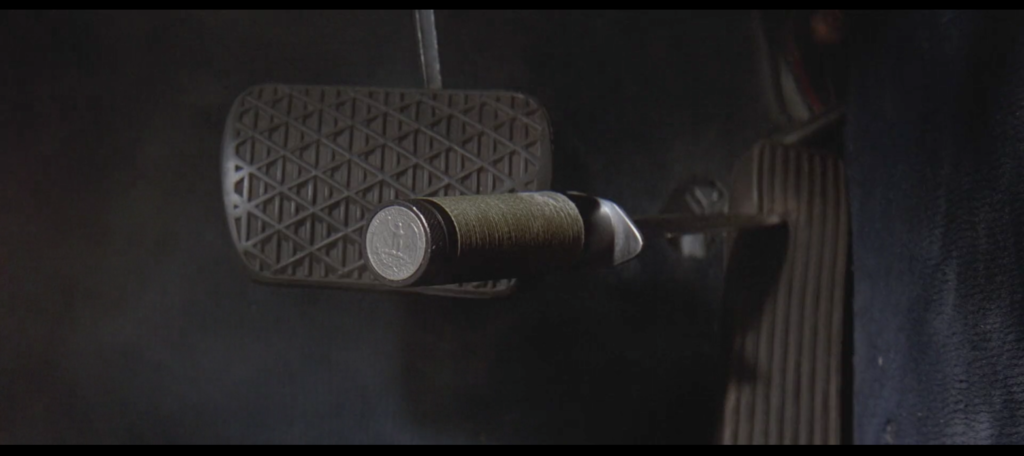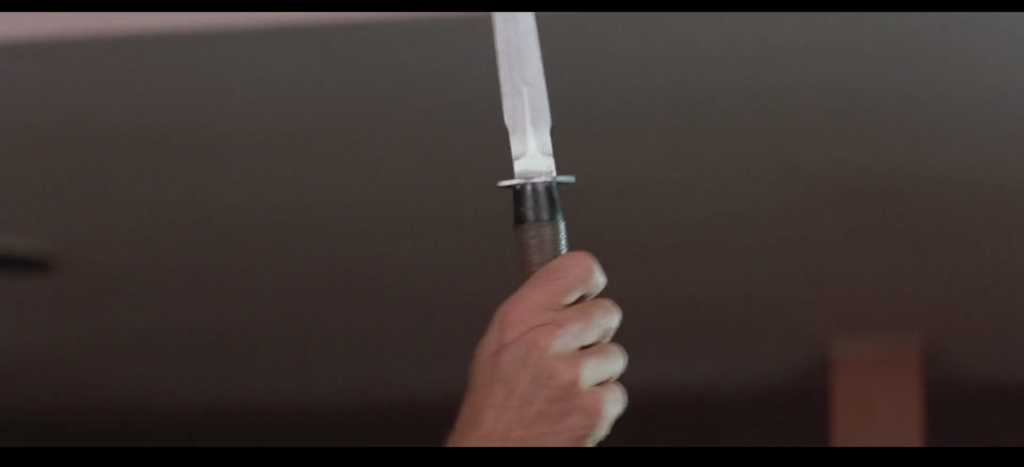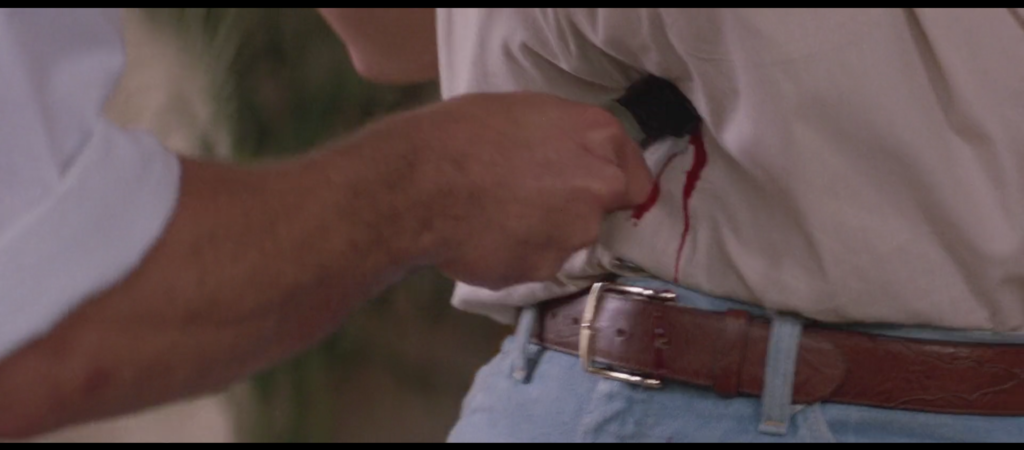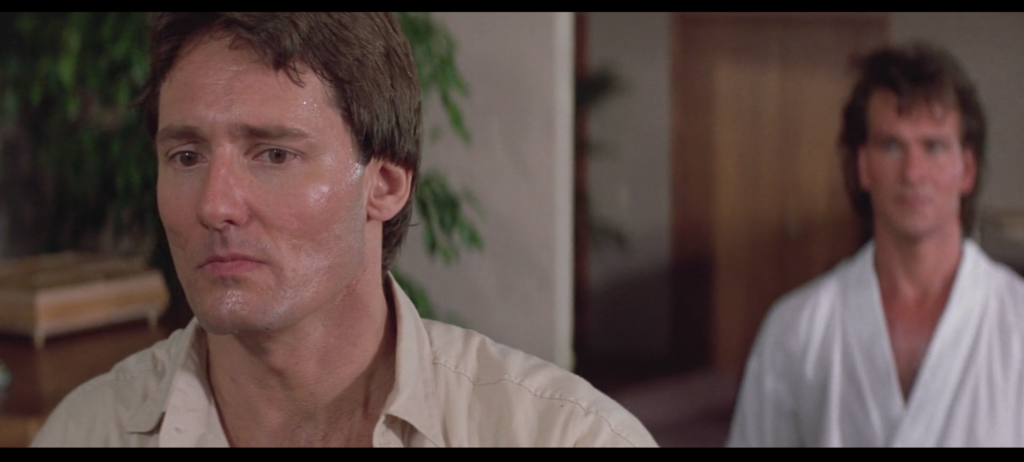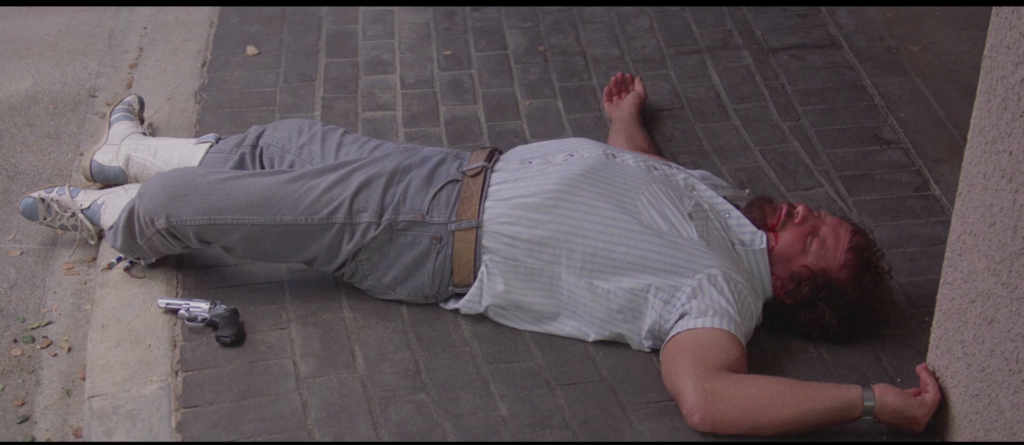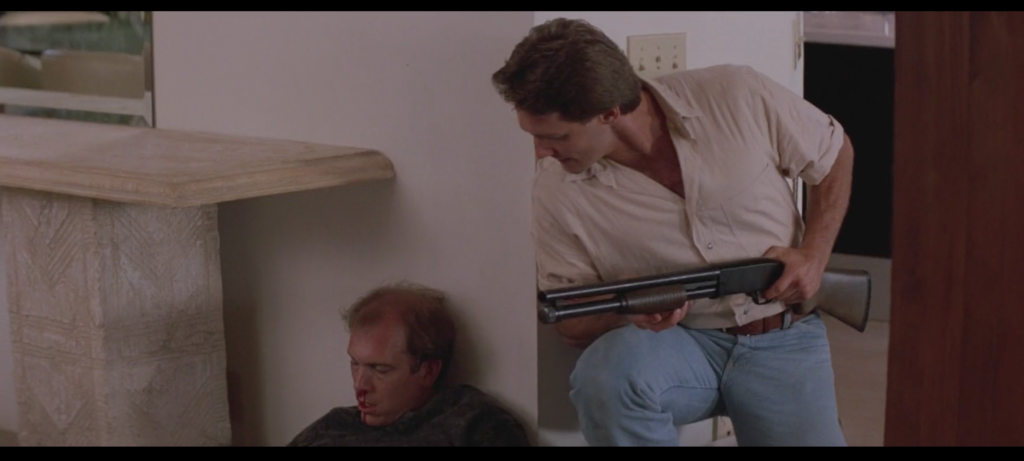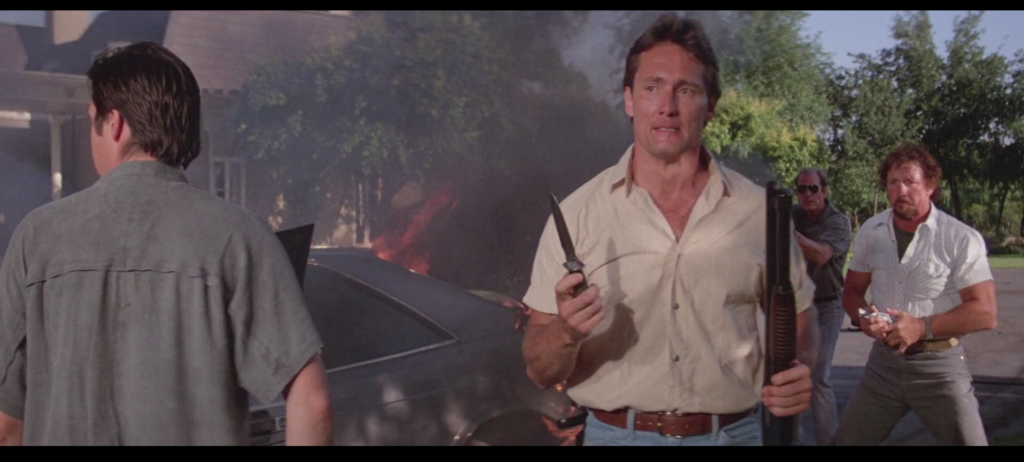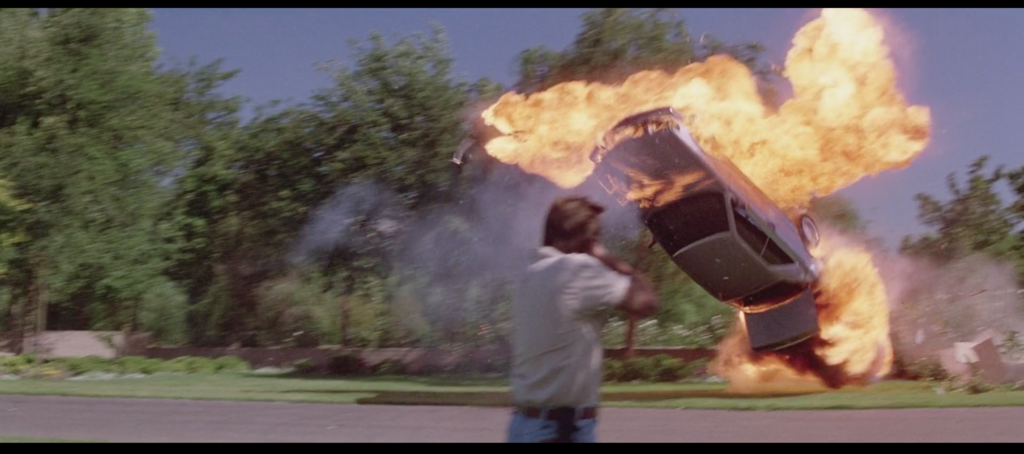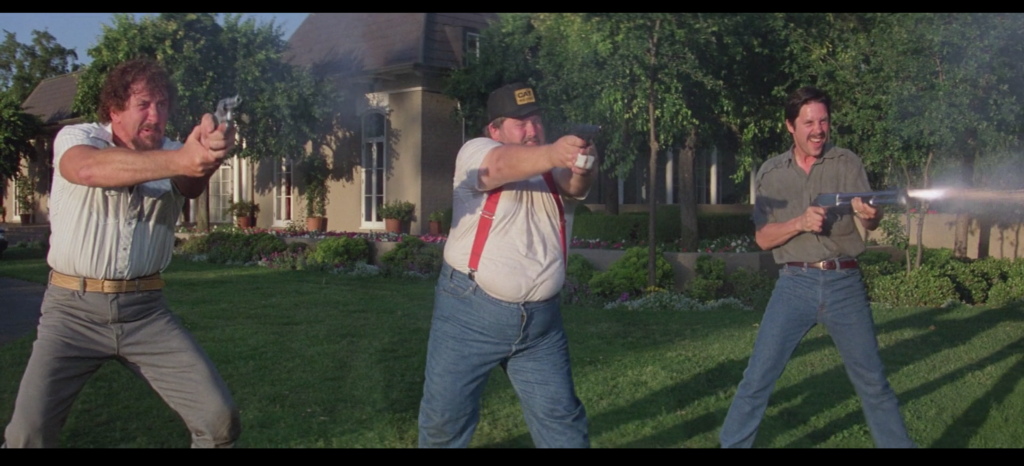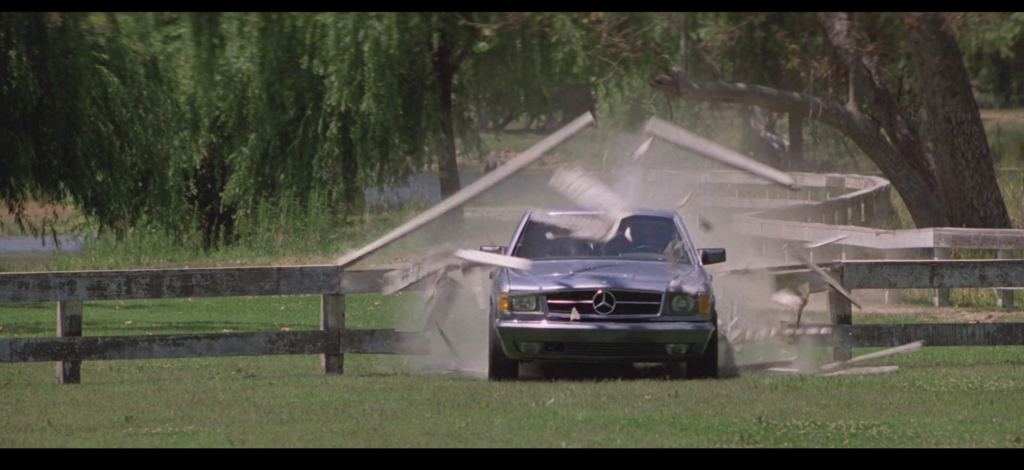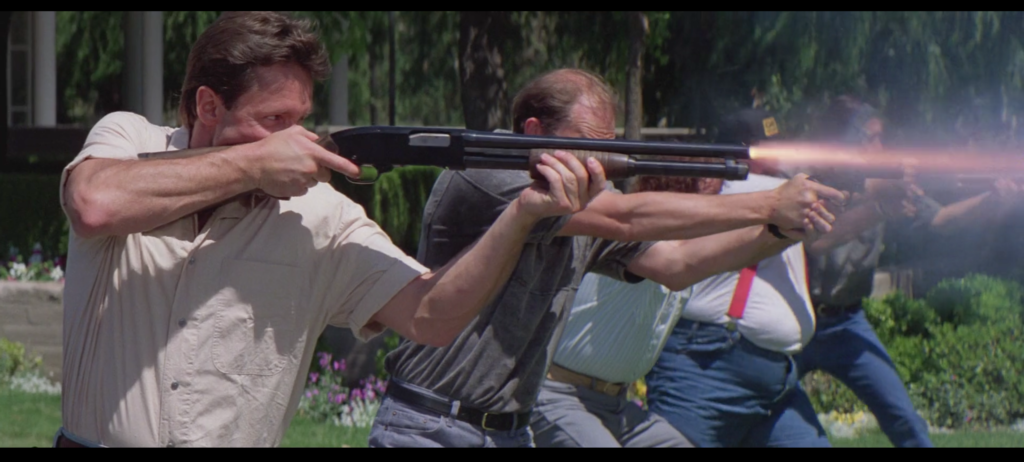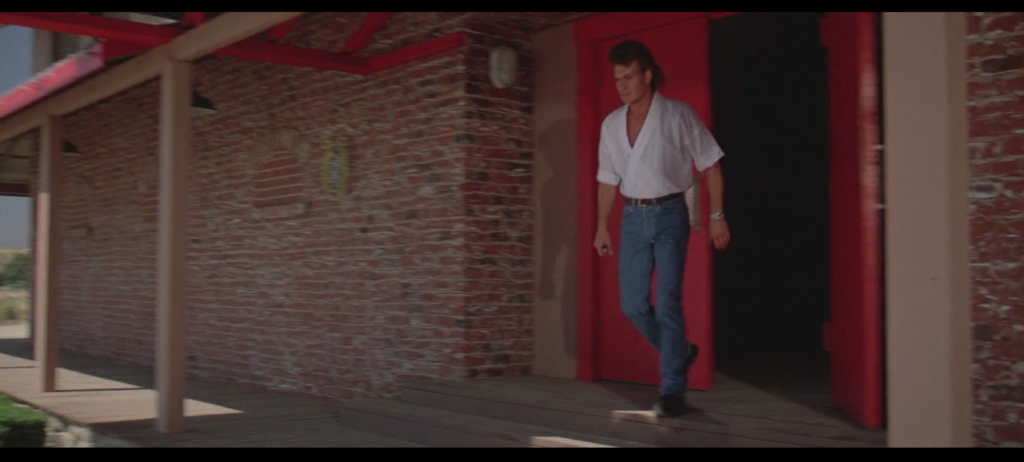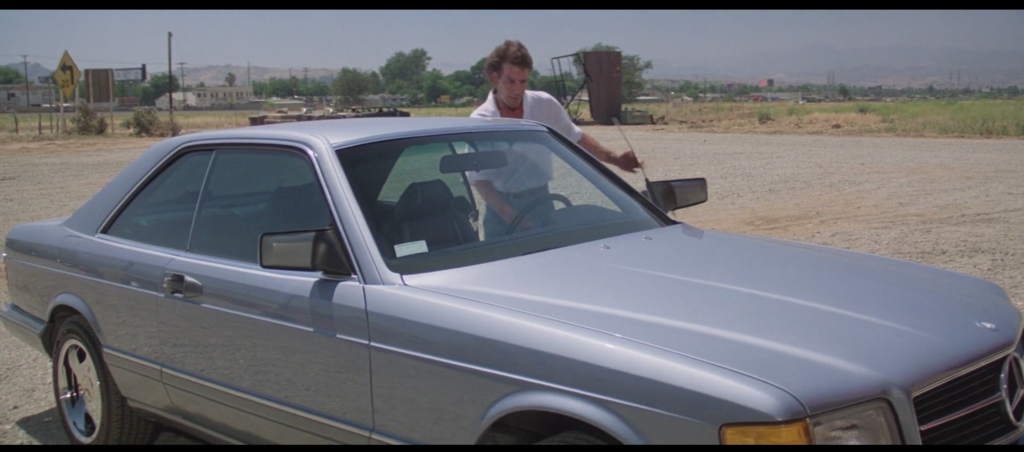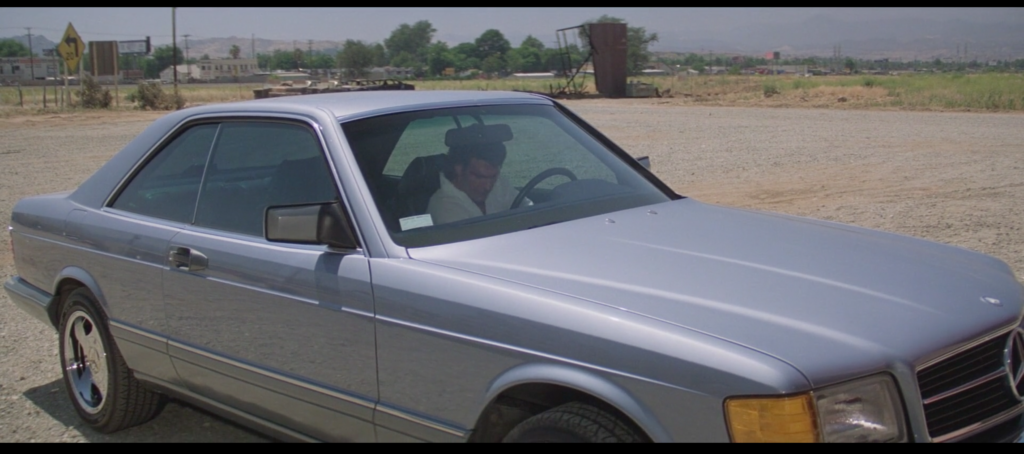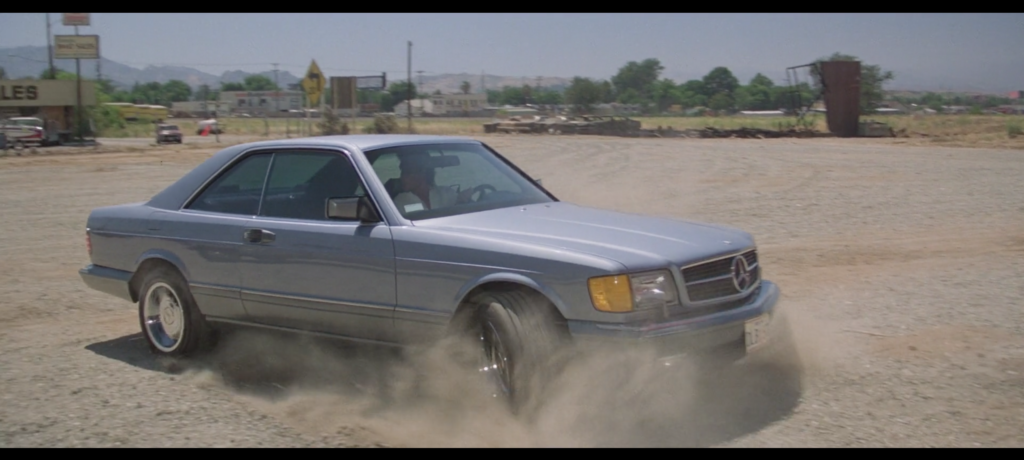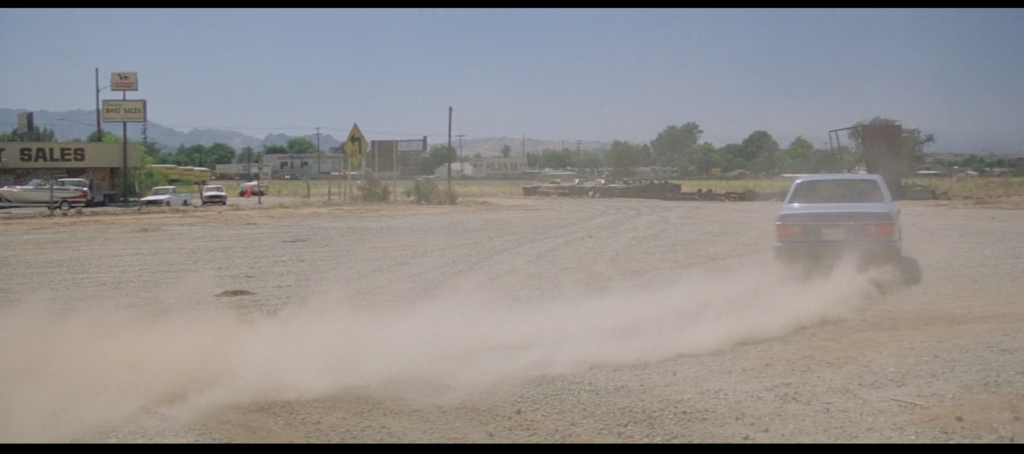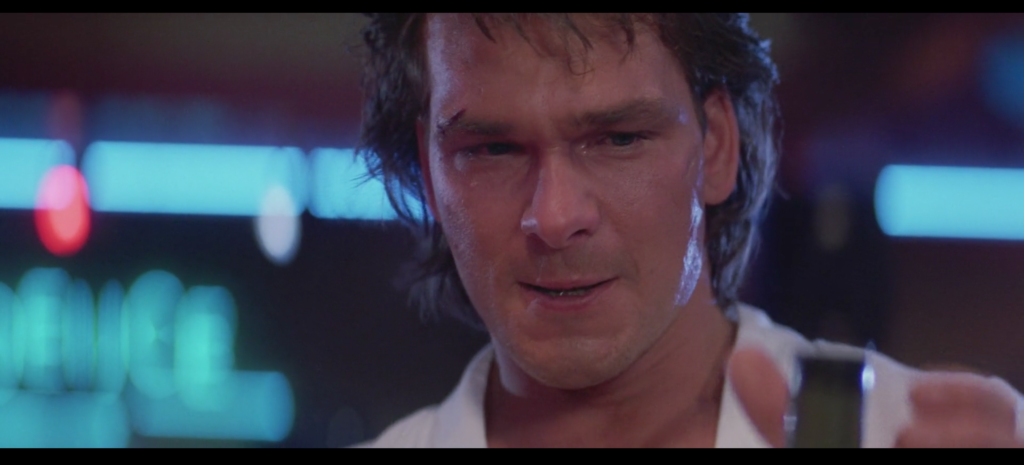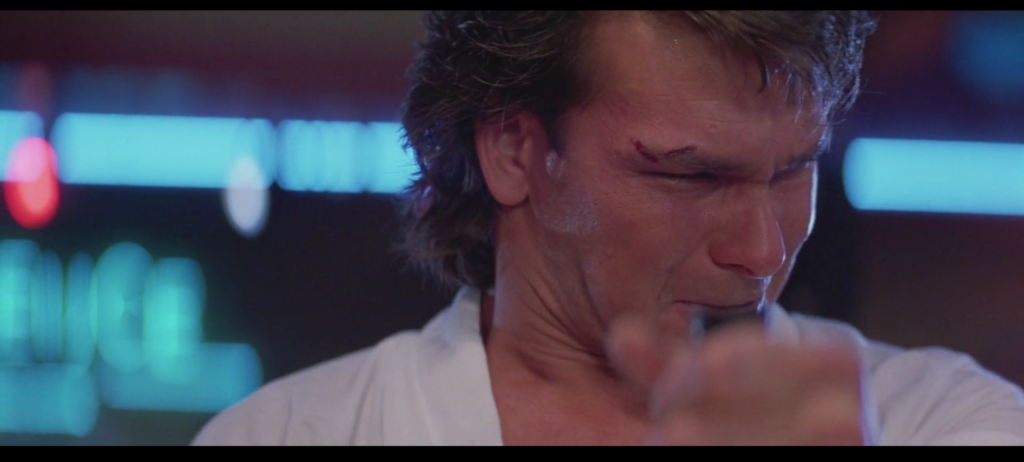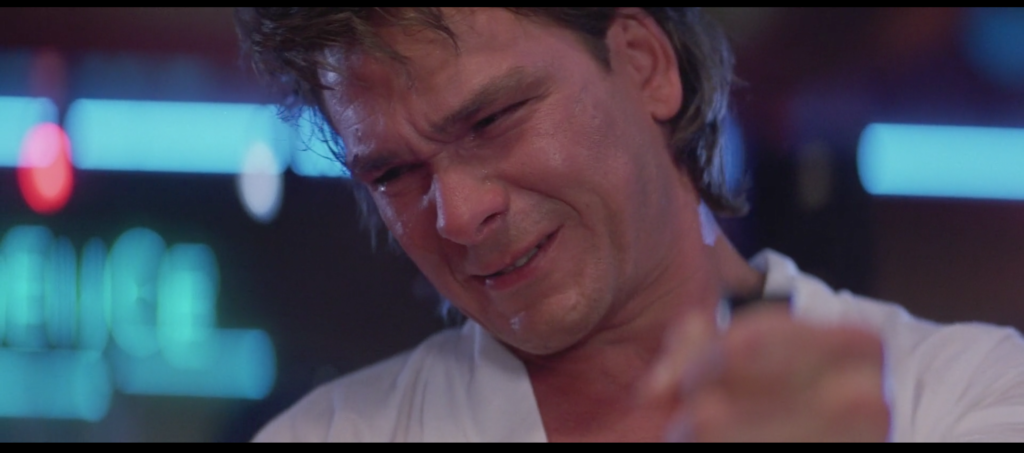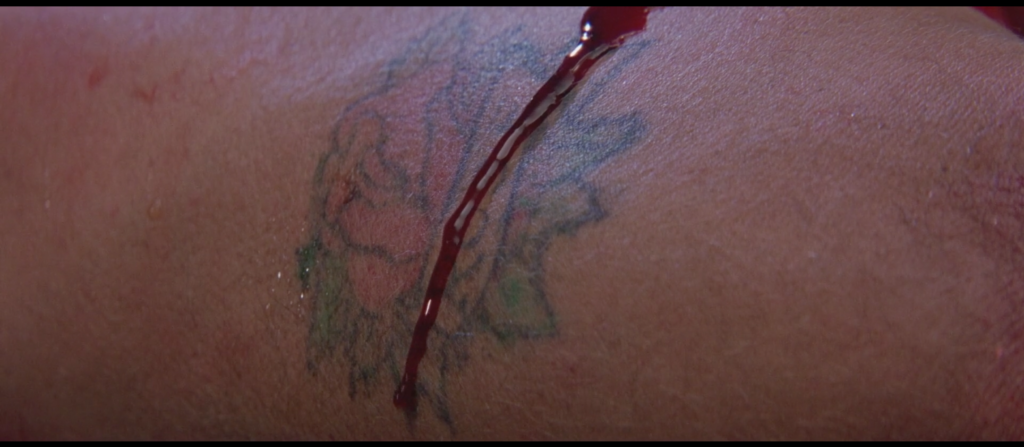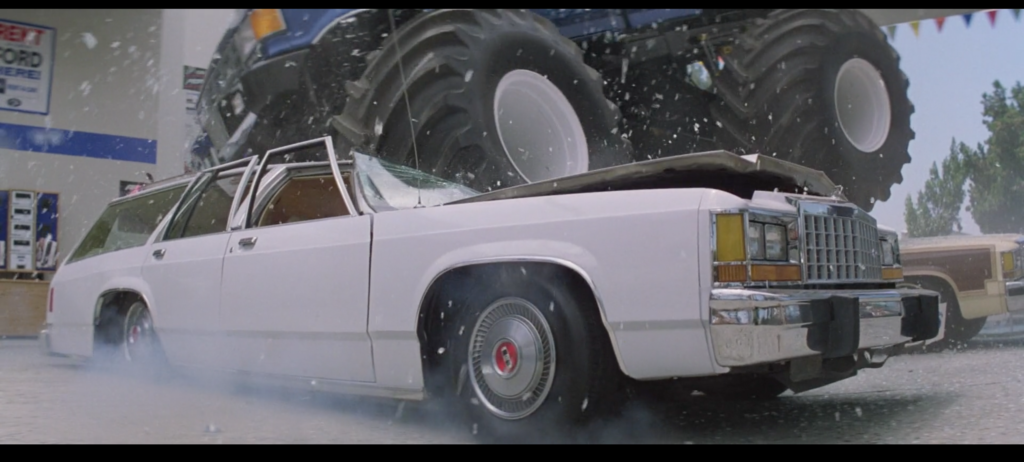No one comes closer to killing Dalton than Tinker. No one. Not Jimmy, in all his beachside posturing and martial-arts prowess. Not Ketcham with his knife. Not Pat McGurn with his shotgun. No, way back when, when he and O’Connor travel to the Double Deuce to forcibly reinstate Pat to his bartending sinecure, Tinker opens a gash in Dalton’s side that it takes a hospital visit and medical intervention from Dr. Elizabeth Clay to close. A few inches to one side and this movie would have ended a long time ago, at Tinker’s hands.
Yet in the end, Tinker is a comical figure, a Pierrot in suspenders and a trucker hat. Why? Because he’s afraid of Brad Wesley’s extensive collection of stuffed and mounted animals, and Dalton exploits this fear by dumping a stuffed polar bear on him, knocking him out. But first, Tinker stammers and sputters and empties his gun into the thing’s inanimate carcass, as if he’s facing not just a living polar bear, but a spectral polar bear, a Tuunbaq, sent from the Arctic wastes to consume his very soul. Everyone else in the goon squad gets popped offscreen, or gets a knife to the torso. Tinker? He’s dispatched by taxidermy.
“You’re made for each other,” Dalton quips after toppling the bear onto his enemy, incapacitating him. This is a fat joke, most likely; Tinker is the most heavyset of the goon squad, ergo a big ol’ bear is his logical nemesis. But keep this in mind: Tinker is the sole survivor, after Jimmy and Morgan and O’Connor and Ketcham and Pat McGurn and even Brad Wesley are long gone. And what animal knows better how to survive in an inhospitable environment? Perhaps that’s the message Dalton intended to send: Survivors know.

